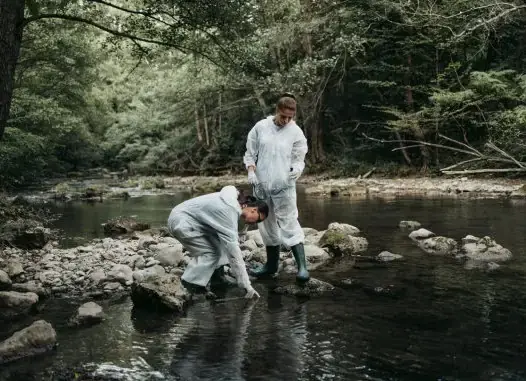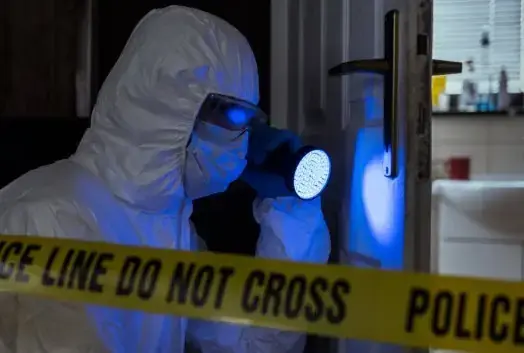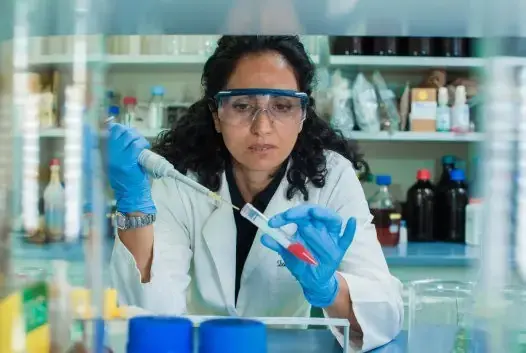CAREER PROSPECTS IN CHEMISTRY MAJORS
Chemistry is a fascinating subject that explores the nature and behavior of matter. It examines the interactions between atoms and molecules and the applications of chemical principles in various fields. If you are interested in a career in chemistry after completing your 12th grade, chemistry can offer various opportunities. The career prospects in chemistry are diverse and rewarding; you can work in research, teaching, engineering, medicine, forensics, and many more. Such vast and promising prospects make it a valuable field for those passionate about science.
Educational Pathways to Build a Career Prospects in Chemistry

If you want to make a career in chemistry, you need a strong foundation in the subject. Additionally, you need a passion for learning and experimenting. Here are some steps to prepare yourself for a successful chemistry career and improve your career prospects in the field of chemistry.
After completing your 12th grade, first, you can apply for a bachelor’s degree in chemistry or a related field, such as biochemistry, chemical engineering, or biotechnology. Moreover, this foundational step will set the stage for advanced studies and career opportunities in various specialized fields. You can opt for a three-year Bachelor of Science (BSc) course or a four-year Bachelor of Technology (B. Tech) course, depending on your interest and eligibility. You may have to pass an entrance exam to get admission to some colleges or universities.
- After earning your bachelor’s degree, next, you can pursue a master’s degree in chemistry or a related field, such as organic chemistry, analytical chemistry, physical chemistry, or medicinal chemistry. Furthermore, a master’s degree will help you gain advanced knowledge and skills in your chosen specialization. In addition, it will prepare you for research or teaching careers, thereby opening up more opportunities for professional growth. Ultimately, pursuing a master’s degree can significantly enhance your expertise and career prospects in the field of chemistry. You can opt for a two-year Master of Science (MSc) course or a five-year integrated MSc course, depending on your preference and eligibility. Various colleges or universities organize an entrance exam or a qualifying exam to get enrolled in the respective institution. Gaining advanced degrees will further improve your career prospects in chemistry.
- If you want to pursue further studies or research in chemistry, then you can apply for a doctoral degree (PhD) in chemistry or a related field, such as nanotechnology, environmental chemistry, or materials science. Not only will a PhD help you develop original and significant contributions to the field of chemistry, but it will also enhance your career prospects as a researcher, scientist, or professor. In order to gain admission to some colleges or universities, you will need to pass an entrance exam or a national-level test, such as the NET or GATE. Therefore, pursuing a PhD is a crucial step for those seeking advanced expertise and impactful career opportunities in the field of chemistry.
Top Career Opportunities for Chemistry Graduates

There are many career prospects in chemistry options available for chemistry graduates in India, depending on your qualification, specialization, and interest. Some of the top career options in chemistry are:
- Radiologist: A radiologist is a medical professional who uses imaging techniques to diagnose and treat various diseases and injuries. These techniques include X-rays, MRI, CT scans, or ultrasound. A radiologist needs a bachelor’s degree in medicine (MBBS), followed by a postgraduate degree (MD or DNB), or a diploma in radiology.
- Pharmacologist: A pharmacologist is a scientist who studies the effects of drugs and chemicals on living organisms, such as humans, animals, or plants. In order to pursue this career, a pharmacologist typically needs a master’s degree or a PhD in pharmacology or a related field. Moreover, related fields such as pharmacy, biochemistry, or biotechnology can also provide the necessary foundation and expertise. Ultimately, this specialized knowledge enables pharmacologists to make significant contributions to healthcare and scientific research.
- Forensic Scientist: A forensic scientist is a specialist who applies scientific methods and techniques to analyze physical evidence. The evidence includes blood, DNA, fingerprints, or weapons, in criminal investigations. A forensic scientist needs a bachelor’s degree or a master’s degree in forensic science or a related field. Related fields include chemistry, biology, or physics. Forensic science offers good career prospects in chemistry for analytical minds.
- Food Technologist: A food technologist oversees the production, processing, preservation, and quality control of food and beverages. A food technologist needs a bachelor’s or a master’s degree in food technology or a related field. Related fields include food science, food engineering, or food chemistry.
- Analytical Chemist: An analytical chemist uses various instruments and methods to measure and identify the chemical composition and properties of substances. These substances include drugs, food, water, or air. An analytical chemist needs a bachelor’s or a master’s degree in chemistry or a related field. Related fields include analytical chemistry, biochemistry, or environmental chemistry. This particular field offers fantastic career prospects in chemistry.
- Teaching: After completion of MSc Chemistry, you will need to do B.Ed., which is a course for teachers. Secondly, you will need to pass some exams that test your teaching skills.
- Quality Control Chemists: By testing a product and examining the results, quality control chemists aim to guarantee its chemical integrity. They go under the name “chemists for quality assurance.” Chemists that specialize in quality control are crucial in guaranteeing the safety and efficacy of the products we use.
- Hazardous Material Management Chemist: Chemical experts in hazardous material management ensure business compliance with all applicable laws, rules, and regulations. To safeguard others in the community, these chemists work both independently and collaboratively as members of a larger team. Additionally, they test, store, and properly dispose of these substances to ensure safety and compliance with regulations. By doing so, they play a critical role in protecting public health and the environment.
- Organic Chemists: The chemical structures of organic molecules are studied by organic chemists. These specialists in organic chemistry research the characteristics of chemicals to determine how to produce and enhance them.
The Bright Future in Chemistry
There are numerous career prospects in chemistry you can consider. In fact, a wide range of options is available, such as chemical engineer, chemist, pharmacy technician, toxicologist, oceanographer, or materials scientist. Additionally, you could explore roles like cytologist, proofreader for chemistry textbooks, scientific data entry specialist, and many more. To dive deeper, start by searching the web, reading books and journals, talking to experts and mentors, or attending career fairs and workshops. Moreover, taking online courses or tests can help you enhance your knowledge and skills in chemistry. As a result, these efforts can significantly boost your career prospects in chemistry.

I hope this article has given you some useful information and guidance on how to pursue a career in chemistry in India. Chemistry is a challenging and rewarding field. It offers many opportunities to learn, grow, and contribute to society. I wish you all the best in your future endeavors.






